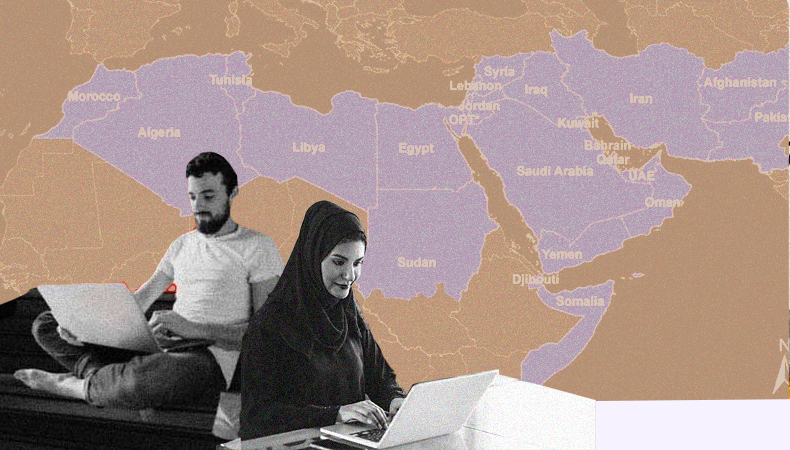How freelancing is shaping post-pandemic Middle East’s workmode

The movement toward flexible contracts, self-employment, and telecommuting has been gaining momentum across a variety of different sectors ever before the COVID-19 pandemic changed the conventions of working life virtually overnight.
The precipitous fall in office attendance and the move away from the old 9 to 5 paradigm are often attributed to a broad desire for more autonomy, geographic mobility, and — most importantly — a better work-life balance.
Employees are actually reluctant to resume their former work habits after two years of social isolation, leading businesses to think of new, fully remote or hybrid models that only require personnel to be present in person for some of the week.
Recruiters now have access to a much broader pool of high-caliber candidates thanks to the epidemic, which has also sparked an increase in cross-border recruiting.
The pandemic has also increased the availability of freelancers and a group of workers known as “digital nomads.”
Read | The World’s Richest Arabs – A Compilation of Arab Billionaires from the Middle East
This change was made possible by the widespread use of internet video communication tools, which have remained popular ever since they were used to sustain face-to-face interactions during lockdowns and travel restrictions.
According to Tarek Salam, director of Middle East and North Africa expansion at Deel, a payroll and compliance service, “the internet is facilitating the creation of labour marketplaces where distance doesn’t matter anymore.”
Indeed, the ability to work remotely and the digitization of the workplace have expanded the pool of talent that is available to employers everywhere. Salam claimed that “remote labour has sparked a new phase of globalisation.”
The modern professional can work from anywhere and still have access to high-paying employment in an intellectually engaging workplace because it is democratising access to high-paid possibilities around the world.
Although it is difficult to estimate the scale of this new workforce, industry estimates indicate there may be as many as 1.56 billion freelancers globally, contributing to a market worth $1.5 trillion and growing at a 15 percent compound annual growth rate (CAGR).
Similar growing trends are being observed in the Middle East, where both Middle Eastern and international businesses are hiring remote workers from other countries.
Middle Eastern expertise has been in high demand from US, UK, and Canadian businesses, with remote hires at least double from the same time last year, according to Salam.
In a 2022 study about freelancing trends, the recruiting website Bayt polled 1,764 people in more than 20 countries throughout the Middle East and North Africa. It was discovered that almost 78 percent of workers expected to increase their freelancing in 2022, and that 70 percent of MENA businesses planned to hire freelancers.
The report also revealed that digital marketing (37 percent) and information technology are the two fastest-growing sectors for independent contractors (20 percent).
Regional governments and private businesses have taken action to make freelancing both a sustainable career for professionals and an appealing resource for employers in order to aid risk-taking newcomers in succeeding.
Freelancing, in the opinion of Najlaa Yousef Safdar, the digital development manager at Nafisa Shams, a division of the charitable organisation Community Jameel Saudi, is a financially realistic choice for people who want to pursue other career objectives.




